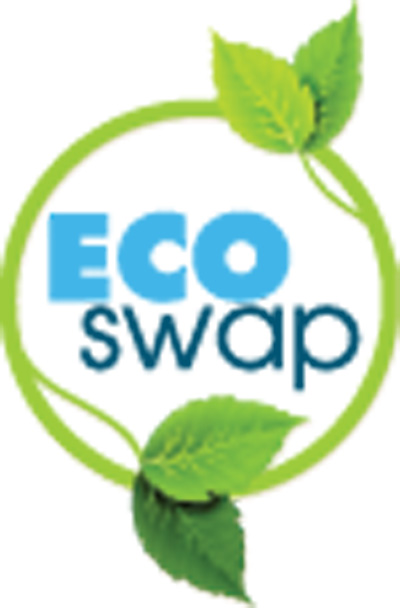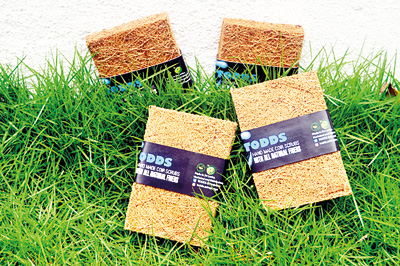Arts
Back to the good old coconut husk to clean pots and pans
Plastic is so ingrained in our daily lives, that it is something that we actively have to wean ourselves off. Take the humble dish sponge that you use every day. Creator of TODDS Handmade Coir Sponges Denham Todd has an eco-friendly substitute in his coconut husk sponge.
Regular kitchen sponges made of synthetic foamed polyurethane plastic cannot be recycled or composted. In addition, the bacteria-killing triclosan that they’re infused with negatively impacts aquatic ecosystems.
Upon learning that synthetic sponges contaminate groundwater and can take up to 50,000 years to deteriorate, Denham was inspired to create a replacement. As a senior Consultant at Eco Lanka Consultants, he handles issues related to coir at the Intercoir factory, and it made him realise that coir was a good alternative. “Back in the day our grandparents used coconut husk, so why can’t we use it today?” Denham asks.
TODDS was created after observing the market and noticing that there were no non-synthetic sponges. TODDS’ handmade coir sponge/scrubs are made with all-natural fibres.
100% eco friendly and 100% biodegradable, these can be used for up to 4 to 6-weeks and are more hygienic than synthetic sponges as they retain less water and thereby prevent bacteria buildup. Use of the coarse sponge is recommended on multiple surfaces such as dishes and pans, as well as in cleaning floors and bathrooms and can be used as a scrub as well.

Denham Todd
The sponges are made at the Intercoir factory in Ekala, an area known for coconut cultivation. The fresh husks are pressed into sheets, and then three layers are glued together with rubber milk, a natural latex. No chemicals are used in their manufacture. After the TODDS sponge starts breaking down, it can be placed in a flower pot as fertilizer.
After feedback from customers, Denham has also created a smaller version of the sponge for more efficient cleaning of cups and mugs. He is also working on a more flexible version .
TODDS sponges are available at SPAR and Arpico supermarkets and at the Good Market store in Reid Avenue and Battaramulla. The smaller version is now available at the Zero Waste Store by JustGoodness on Chitra Lane.


